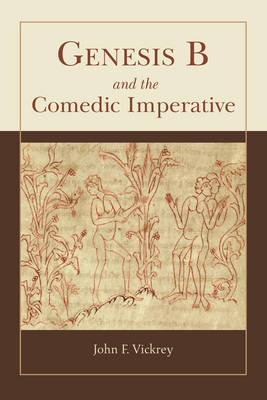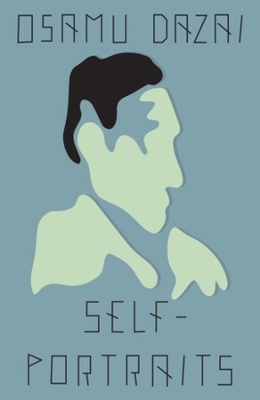
Genesis B and the Comedic Imperative
Seiten
2015
Lehigh University Press (Verlag)
978-1-61146-167-1 (ISBN)
Lehigh University Press (Verlag)
978-1-61146-167-1 (ISBN)
Genesis B and the Comedic Imperative argues that the Old English (from Old Saxon) poem Genesis B does not present, as some scholars assert, an unorthodox view of the Fall of Adam and Eve but that the poem reflects the comedic "happy ending" that characterizes much medieval Christian literature: the eventual attainment of Heaven.
Readers of Old English would generally agree that the poem Genesis B, a translation into Old English of an Old Saxon (that is, continental) retelling of the story of the Fall, is a vigorous and moving narrative. They would disagree, however, as to the meaning of the poem. Some hold that it reflects an orthodox Christian viewpoint and others claim that it assumes a distinctly unorthodox position in portraying Adam and Eve as not morally culpable in their disobedience but merely tricked into disobedience through the wiles of the Devil's agent. The study Genesis B and the Comedic Imperative, examining these incompatible readings, infers that the poem is essentially orthodox, that it demonstrates sufficiently the moral culpability of Adam and Eve, and that it departs from orthodoxy only insofar as it conveys a strong impression that Adam and Even will undertake what amounts to Christian penance, leading them eventually to Heaven. The poem thereby attains the happy ending typical of early medieval Christian narrative. Hence the titular "Comedic Imperative."
The inference of orthodoxy follows as a nigh-inevitable conclusion of the interpretation of several motifs: the poem's culturally imbued martiality, its allegorical bent, and also what A. N. Doane noted as its tropological bent. The argument depends heavily upon philological inquiry and on examination of prevailing beliefs and attitudes of contemporaneous Frankish society, religious and civil, leading to the reinterpretation of crucial passages. Of these, most notably, is the passage in which Adam, in refusing the Tempter's invitation to eat the fruit, observes that the Tempter has given no tacen ‘sign’ as evidence that he truly is God’s emissary. Other passages that have impeded critical perception of the poem's significance are also examined, such as the notorious micel wundor clause (lines 595-98) and the pseudo-gnomic declaration swa hire eaforan sculon after lybban (623-35). In sum, Genesis B sustains the orthodoxy otherwise of the Junius 11 manuscript.
Readers of Old English would generally agree that the poem Genesis B, a translation into Old English of an Old Saxon (that is, continental) retelling of the story of the Fall, is a vigorous and moving narrative. They would disagree, however, as to the meaning of the poem. Some hold that it reflects an orthodox Christian viewpoint and others claim that it assumes a distinctly unorthodox position in portraying Adam and Eve as not morally culpable in their disobedience but merely tricked into disobedience through the wiles of the Devil's agent. The study Genesis B and the Comedic Imperative, examining these incompatible readings, infers that the poem is essentially orthodox, that it demonstrates sufficiently the moral culpability of Adam and Eve, and that it departs from orthodoxy only insofar as it conveys a strong impression that Adam and Even will undertake what amounts to Christian penance, leading them eventually to Heaven. The poem thereby attains the happy ending typical of early medieval Christian narrative. Hence the titular "Comedic Imperative."
The inference of orthodoxy follows as a nigh-inevitable conclusion of the interpretation of several motifs: the poem's culturally imbued martiality, its allegorical bent, and also what A. N. Doane noted as its tropological bent. The argument depends heavily upon philological inquiry and on examination of prevailing beliefs and attitudes of contemporaneous Frankish society, religious and civil, leading to the reinterpretation of crucial passages. Of these, most notably, is the passage in which Adam, in refusing the Tempter's invitation to eat the fruit, observes that the Tempter has given no tacen ‘sign’ as evidence that he truly is God’s emissary. Other passages that have impeded critical perception of the poem's significance are also examined, such as the notorious micel wundor clause (lines 595-98) and the pseudo-gnomic declaration swa hire eaforan sculon after lybban (623-35). In sum, Genesis B sustains the orthodoxy otherwise of the Junius 11 manuscript.
John F. Vickrey is emeritus professor of English at Lehigh University.
Contents
Introductory Note
List of Abbreviations
Foreword
I: Deposition of a Dame
II: Comedy, Wit, Tropology, Allegory
III: Adamic Resolve
IV: Adamic Failure
V: Father of Lies
VI: "God Was Himself a Warlord”
VII: "No Fiend Here in the Realm"
VIII: Dom Is Darker and Deeper
IX: The Boda and Gottschalk
X: Adam and Eve and the Light
Notes
Bibliography
Index
| Verlagsort | Cranbury |
|---|---|
| Sprache | englisch |
| Maße | 160 x 236 mm |
| Gewicht | 640 g |
| Themenwelt | Literatur |
| Geisteswissenschaften ► Sprach- / Literaturwissenschaft ► Anglistik / Amerikanistik | |
| Geisteswissenschaften ► Sprach- / Literaturwissenschaft ► Literaturwissenschaft | |
| ISBN-10 | 1-61146-167-7 / 1611461677 |
| ISBN-13 | 978-1-61146-167-1 / 9781611461671 |
| Zustand | Neuware |
| Haben Sie eine Frage zum Produkt? |
Mehr entdecken
aus dem Bereich
aus dem Bereich
Stories
Buch | Softcover (2024)
New Directions Publishing Corporation (Verlag)
14,95 €


